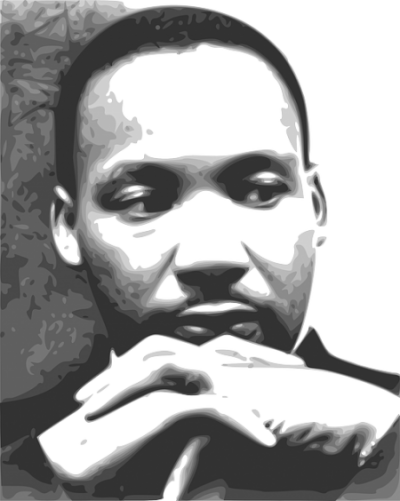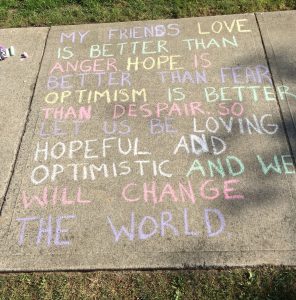Standing Up for Your Human Rights

Martin Luther King Jr. said, “Injustice anywhere is a threat to justice everywhere.” What would you do if your human rights were being ignored? Many people want to stand up for themselves, but don’t know where to start. If you decide to stand up for your rights, here are some questions that will help you make a plan:
How are your rights being ignored?
Write down your problem in a sentence. Here are some examples of human rights problems:
- Someone at work often makes racist jokes. You have asked him or her to stop, but the problem continues.
- The bathroom in your house has had a mould problem for a long time, and your landlord will not fix it.
- The government raised the fees for your education, and you can no longer afford them.
- You receive income assistance, and the money is not enough to meet your basic needs, like food and housing.
What is your goal?
Be clear about what you want to happen. For example:
Problem |
Goal |
| Someone at work often makes racist jokes. You have asked him or her to stop, but the problem continues. | Your boss will make a rule about workplace bullying. There will be training for staff members about safe work spaces. |
| The bathroom in your house has had a mould problem for a long time, and your landlord will not fix it. | Your landlord will have repairs done in the next month. |
| The government raised fees for your education, and you cannot afford them. | The government will put more money into education so the fees will be lower. |
| You receive income assistance, and the money is not enough to meet your basic needs, like food and housing. | The government will give more money to people on income assistance. |
Who should you speak to?
Always try to speak to the person who has responsibility for the problem you face. Find out the “chain of command,” or levels of people who make decisions. If the first person in the chain of command does not help you, go up to the next person in the chain.
What might get in your way?
Be creative to find ways to deal with these challenges.
Challenge |
Solution |
| I don’t know enough about the problem. | Find an organization that tries to solve problems like yours. See if it has someone who can help you learn more. |
| I haven’t stood up for myself much before. | Find a friend, a family member, or someone from an organization who will help you with your writing or go with you to meetings. |
| English is my second language. | |
| Fixing this problem will take more reading and writing skills than I have right now. | |
| I worry that people will judge me. | Think about what matters to you most. What do you need to do to stay true to the things you believe in? How can you do this in a way you can be proud of? |
What can you use to make your point?
- Keep notes about the 5 W’s of the problem — who, what, where, when, and why.
- Keep any letters or forms related to the problem.
- Ask friends, family, doctors, or support workers to write letters that back up what you are saying.
- For some problems, you might want to take photos.
- Try to stay calm, be clear about what you need, and be respectful.
How will you speak up?
You can:
- write a letter
- send an email
- make a phone call
- book an appointment
- join an organization
- vote for people who share your beliefs
Who can you turn to for support?
Your support people might be:
- family
- friends
- an MLA or MP
- an organization
- a support group
What will you do if this plan doesn’t work out?
It’s a good idea to have a back-up plan. This will help you stay strong and not give up. Are you willing to:
- change your goals?
- speak out in a different way?
- talk to different people in the chain of command?
- get help from different people?

As you work to make the world a better place, remember the words of a Canadian named Jack Layton, “My friends, love is better than anger. Hope is better than fear. Optimism is better than despair. So let us be loving, hopeful, and optimistic. And we’ll change the world.”
Attributions
Martin Luther King, Jr.
martin luther king civil rights by Nemo is in the public domain.

